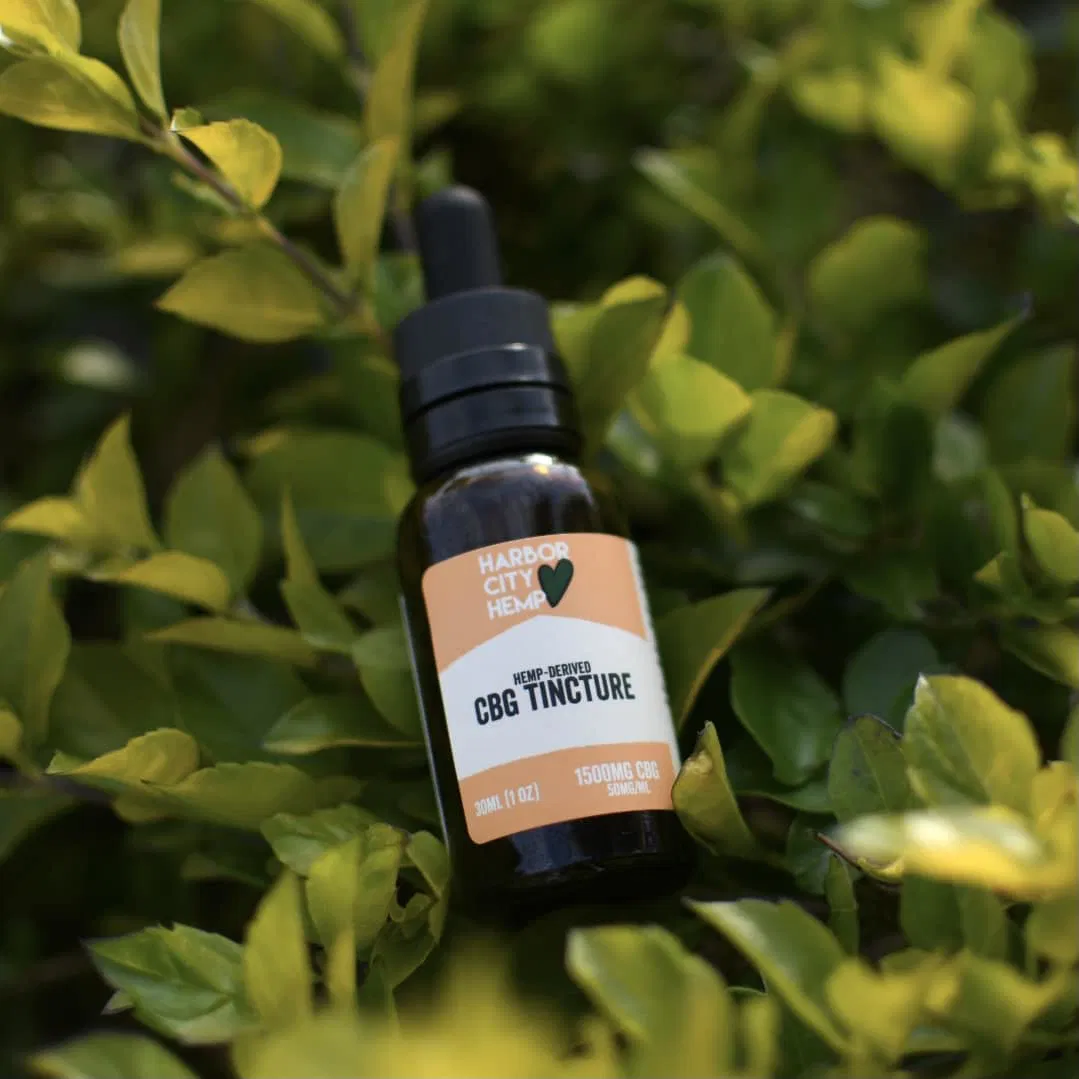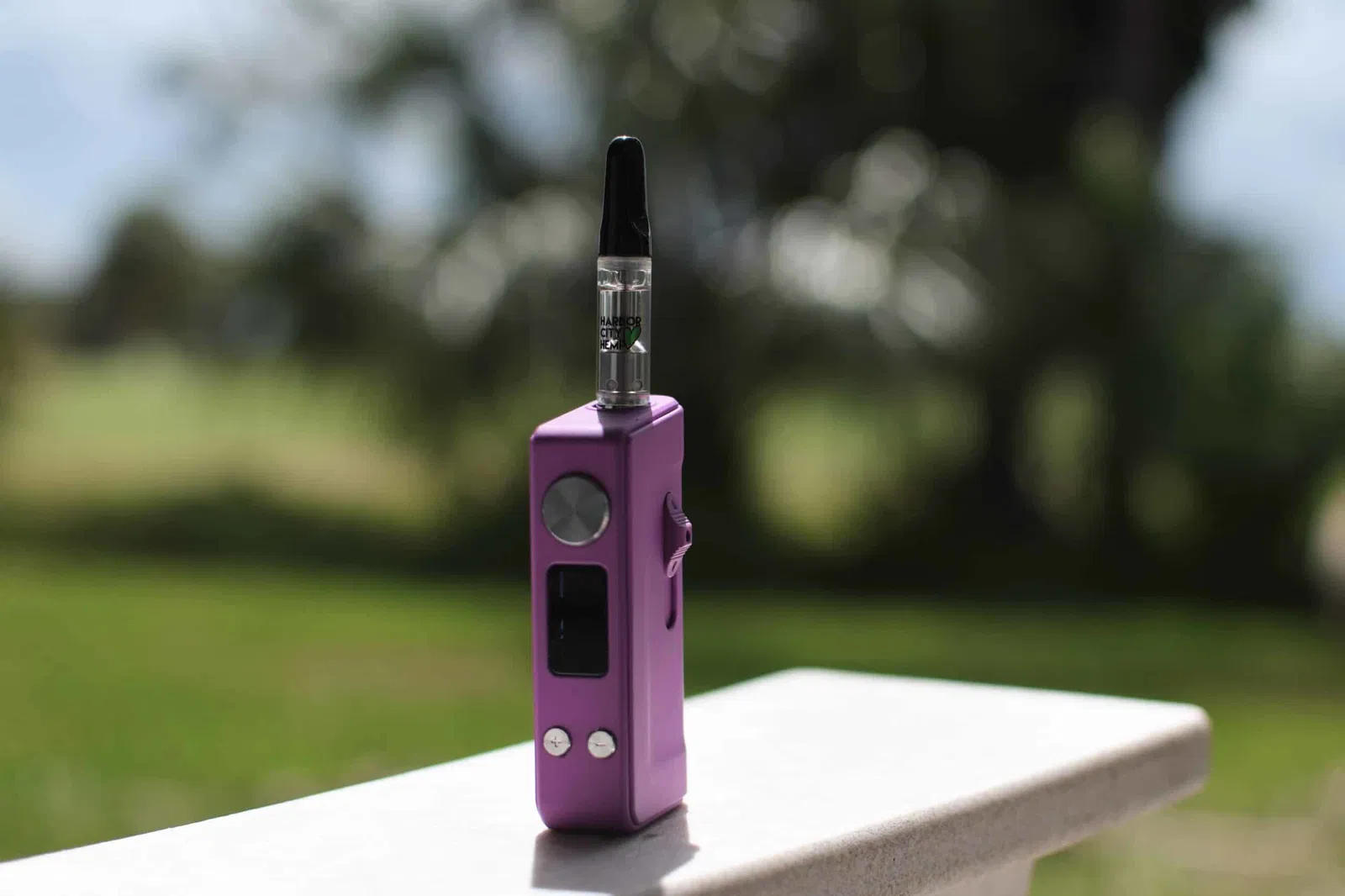If you’ve ever used marijuana, you’ve probably heard about its two most popular cannabinoids, tetrahydrocannabinol (THC) and cannabidiol (CBD). But these aren’t the only cannabinoids found in the plant. You’ll also find minor cannabinoids, like CBN (cannabinol).
These medicinal compounds, unique to cannabis alone, can be very different in terms of their effects and properties. So, if you’re curious about how your cannabis strain will affect you, learning about the other cannabinoids is the first step.
CBN’s Historical Note
CBN is primarily found in old, dried cannabis flowers. CBN was the first phytocannabinoid isolated from Indian hemp in 1896, i.e., decades before the discovery of CBD.
Up to now, CBN has been researched much less than CBD, but we’ll continue to learn more about potential CBN cannabinoid benefits as additional studies emerge. Research on CBN is scarce, especially in human clinical settings, but some preclinical studies suggest CBN can be a therapeutic cannabinoid in a few ways.
As an excellent example of CBN isolate, please see Harbor City Hemp CBN Isolate!
What Is CBN?
For starters, let’s go through some basic information about cannabinol.
Cannabinol (CBN) is a cannabis-derived compound in the Cannabis Sativa plant. Manufacturers can also synthesize this cannabinoid. CBN is a sibling of CBD and over 100 other cannabinoids found in a full-spectrum hemp oil or extract product.
Production of CBN
CBN is unique in the way it forms; it’s created after the cannabis plant is harvested– the degradation process associated with THC leads to the creation of CBN. When THC is exposed to sufficient energy– e.g., excessive amounts of light or heat, which can act as oxidants– THC molecules transform into a unique metabolite: CBN.
In some surprising ways, looking at various cannabinoids is similar to considering them like siblings living in the same house. While CBD has gotten the most media attention over the last decade, it doesn’t mean that the other siblings, including CBN, are not as exciting and worthy.
CBD vs. CBN: Similarities & Differences
As we said, we can see CBD and CBN as siblings; but what are the most important similarities and differences between these two?
CBD & CBN Similarities
CBN and CBD are both cannabinoids that are derived from the cannabis plant. Both are non-intoxicating substances, meaning they won’t induce the ‘high’ feeling or alter the state of your mind.
According to some preliminary research, these cannabinoids have similar actions via interactions with key receptors in the endocannabinoid system. Therefore, CBD and CBN are somewhat expected to have similar properties. For instance, both can support a sense of relaxation and a balanced inflammatory response.
CBD & CBN Differences
So, we’ve learned that CBN and THC are closely related; CBN is formed from THC! But what about the other famous cannabinoid, CBD?
While CBD and CBN may have similar effects, they’re still very different phytochemical compounds. Cannabidiol (CBD) is the second most common cannabis compound—after THC. (But some consider it the first!)
Manufacturers can breed cannabis plants with different strains to have a higher percentage of CBD. Still, they cannot directly adjust the amount of CBN in a Cannabis Sativa plant since it’s created from the breakdown of THC.
Note: Exposing THC to heat or light can accelerate the breakdown of THC into CBN.
More clinical studies have been performed on CBD than CBN because it’s more readily available. Clinical research shows that CBD can help ease stress and anxiousness, improve resilience, and support a positive mood. CBN can’t quite compete (just yet) with CBD’s list of science-backed benefits.
Although CBD is one of the major cannabinoids, sometimes THC casts a shadow over it. CBD isn’t obtained directly from THC but exists independently within the cannabis plant.
Scientists better understand CBD than CBN, particularly from a clinical standpoint. Besides, CBD is more prevalent in mainstream retail products. Various studies support several therapeutic benefits of CBD, but CBN can’t quite compete with CBD to our knowledge.
CBD vs. CBN – Which One’s Better for Stress?
If stressed out, you may wonder if CBN is a worthy candidate to help. If we exclusively compare CBD and CBN, the findings are overwhelmingly in favor of CBD being a more potent and effective agent– this is true for various issues, including stress and relaxation. CBN could help with anxiety through its slight effects on the CB1 receptor.
So, CBN is better for promoting calm when paired with other cannabinoids in full-spectrum products. Full-spectrum hemp products contain the entire array of all the primary compounds found in cannabis plants. Depending on their concentrations, cannabinoids can work together synergistically to enhance the product’s overall benefits, including relaxation, stress, and pain relief.
Note: For a perfect blend of 750mg of CBN and 750mg of Delta 8 THC (D8), please look at Harbor City Hemp CBN: D8 Tincture.
Potential CBD Benefits
Before we discuss CBN in more detail, let’s review CBD’s main benefits, which include:
- Alleviating symptoms of anxiety and depression
- Relieving pain related to MS (multiple sclerosis), cancer, and nerve damage
- Reducing symptoms of arthritis
- Treating opioid addiction alongside other interventions
The 750mg Harbor City Hemp CBN Tincture is an excellent choice for those looking to try CBN!
How Does CBN Affect the Body?
CBN and CBD bind with CB2 receptors in the body’s endocannabinoid system (ECS). This central regulatory system controls many essential functions within the human body. For example, it plays a significant role in nervous system function and helps the body react to internal and external stimuli.
ECS is made of a family of cannabinoid receptors; it also consists of the endocannabinoids that the body produces naturally. Cannabinoid receptors CB1 and CB2 are the most studied receptors in the ECS system. The way different cannabinoids interact with these receptors significantly influences their effects.
For instance, when CBD interacts with the CB1 receptor, it seems to lead to feelings of relaxation. Additionally, CB2 receptors are primarily associated with immune system regulation.
While studies are still scarce and very preliminary, it’s almost evident that CBN interacts with the primary CB1 cannabinoid receptor. But it does it so gently: it binds to the CB2 receptor slightly more potent than its sibling CBD.
Nevertheless, there are more interactions within the ECS. But since most of these interactions are very weak– on the molecular scale– it isn’t easy to demonstrate the effects.
Potential Benefits of CBN
First, it’s important to highlight that experiments on humans are limited and have shown somewhat inconsistent effects of CBN. But the CBN cannabinoid has a few purported benefits.
Treating Epidermolysis Bullosa (EB)
Researchers have been studying the effects of CBN cream in treating EB. This term refers to a group of rare diseases that cause the skin to blister quickly. Researchers have found that CBN cream is well-tolerated on normal, intact skin and open wounds, causing no delay in wound healing.
CBN may also have anti-inflammatory properties that could be beneficial in alleviating chronic pain where healing has been prevented by prolonged inflammation.
Reducing the Effects & Symptoms of Glaucoma
According to recent studies, CBN can help treat eye conditions like glaucoma. This eye condition causes vision loss and blindness as it damages the optic nerve in the back of the eye.
Studies found treating specific retinal cells with a topical CBN formulation resulted in a high level of cell survival when these retinal cells were exposed to high-pressure conditions. CBN outperformed THC and CBD in these tests.
CBN can also have neuroprotective effects, meaning it can protect nervous system cells and structures by significantly reducing or preventing natural cell death.
Relieving Chronic Muscle Pain
A 2019 study on rats found CBN – as well as CBD and a mix of the two cannabinoids – decreased muscle sensitization. CBN could relieve pain associated with chronic pain disorders such as the following.
- Temporomandibular disorders, i.e., pain in the jaw muscles, joints, and nerves.
- Fibromyalgia, i.e., a condition that causes pain all over the body.
Still, clinical studies have yet to confirm these for humans.
Promoting Sleep
The primary benefit of CBN is its ability to promote sleep. A 2021 study showed that products containing detectable traces of CBN have a beneficial impact on sleep quality and quantity.
THC is the most infamous cannabinoid used widely to enhance sleep quality. And since CBN is a byproduct of THC oxidation, it’s not surprising that CBN can also improve sleep quantity and quality – even at low doses.
Antioxidant Properties
Beyond sleep, some preliminary evidence suggests that CBN might work as an antioxidant. Antioxidants are chemical species that can neutralize free radicals in the body. These radicals can, for example, trigger chain reactions that may damage the cells of organisms.
While it’s too early to claim anything definitive about CBN’s benefits, its use is consistently increasing – just like other cannabis compounds. As research continues, we can hopefully better understand CBN and its significant benefits on the brain and body.
Potential Risks & Side Effects of CBN
Clinical studies of CBN and its effects on human bodies are limited. So it’s difficult to say precisely how CBN can affect or is expected to affect the human body. Besides some speculations, potential risks that we can confidently associate with CBN include the following:
- Drowsiness
- Sedation
- A positive result on a drug test.
Drowsiness & Sedation
Drowsiness is a noticeable side effect of CBN, especially when combined with CBD. For this reason, we don’t recommend people take CBN products during the day. As more human research emerges, we hope more reliable data will be available to everybody about side effects and drug interactions.
Folks turn to CBN-rich products for assistance with relaxation and sleep.
Positive Drug Test Result
There’s evidence that using CBN could inadvertently lead to failed drug tests. At least one study showed that CBN could lead to a positive result in two individual drug tests, and in one drug test, CBN even showed an additive effect with THC, essentially increasing the presence of THC.
So even if you have undetectable amounts of THC in your body, depending on the test’s sensitivity, the presence of CBN could skew your levels. And that means a positive drug test.
Where to Buy CBN Products
If you want to try a CBN product, you can likely find some options from popular brands. When purchasing cannabis products, always check the following factors.
- The company should have a COA (certificate of analysis) for all its products. The certificate should outline the exact amounts of various cannabinoids in each product and the presence of any molds, heavy metals, and pesticides.
- The company must use third-party testing. Reputable companies should send their products to a third-party lab for independent testing to prevent conflicts of interest, biases, and label inaccuracies.
Harbor City Hemp Discount Program
At Harbor City Hemp, we’re happy to offer a discount of up to 30% on all eligible products to:
- Veterans
- People with long-term medical disabilities
- People with low income.
We don’t offer partial refunds to orders placed before or after a discount program request is approved. We ask that those that qualify for this program use the discount for themselves or the family member they applied for.
Please see our Harbor City Hemp Discount Program for more information.
Bottom Line
CBD is one of the most well-known cannabinoids–competing closely with THC. But, if you want to try broad- or full-spectrum cannabis products, you need to familiarize yourself with the entire spectrum of cannabis compounds to understand how they work together– alone, jointly, and synergistically. When you consume CBN in a full-spectrum product, the cannabinoid seems best for promoting sleep.
We’re happy to answer any follow-up questions you may have. Do not hesitate to get in touch! Our friendly budtenders are delighted to help. And don’t forget to check out Harbor City Hemp CBN products.
Now, let’s answer a few questions our users often ask about CBN and its properties.
FAQs on the Cannabinoid CBN
What’s CBN Good For?
In addition to the potential benefits mentioned above, rodent studies suggest that CBN can be a good:
- Antibacterial agent: Researchers found that CBN is a potent antibacterial agent against some strains, such as MRSA bacteria resistant to traditional antibiotics.
- Neuroprotectant: CBN can significantly help fight against ALS and other neurodegenerative conditions.
- Appetite stimulant: Some tend to avoid THC– i.e., another well-known appetite stimulant– due to its intoxicating effects. Therefore, CBN could be an alternative for those seeking to get a feeling that they want to eat something without the high.
- Anti-inflammatory: CBN could be an incredible help to those suffering from debilitating conditions such as rheumatoid arthritis.
THC vs. CBN: What Are the Differences?
CBN forms when THC degrades due to heat, air, or light exposure. This phenomenon explains why higher concentrations of CBN can be found in aged, dry plants. But there’s a vast difference between CBN and THC; CBN doesn’t cause the intoxicating effects associated with THC.
Does CBN Help with Anxiety?
CBD has been more extensively studied for anxiety, seizures, and pain, while CBN has been suggested as a potential candidate for promoting sleep, stimulating appetite, and treating pain. CBD and CBN, when combined, are highly concentrated and potent but if you want to try CBN for anxiety, first speak with your healthcare provider.
What Does CBN Do to the Brain?
Scientists have been working on the therapeutic effects of medical marijuana for a host of health conditions, including neurodegenerative diseases like Alzheimer’s. Among the best-known cannabinoids, CBD and THC have received the bulk of the research community’s attention.
However, lesser-known compounds, such as cannabinol (CBN), are also being incorporated into research. Nevertheless, early study results suggest that CBN can help protect brain cells in aging and neurodegenerative processes.
CBN vs. Delta-8: Which Is More Potent?
CBN has sedative and soothing properties, whereas Delta-8 helps to calm and relax. So they make a pretty ideal combination. To optimize Delta-8 and CBN effects, take the two cannabinoids regularly. Start low and go slow. Users report progressively feeling the results as they learn and use the correct dosage daily.




